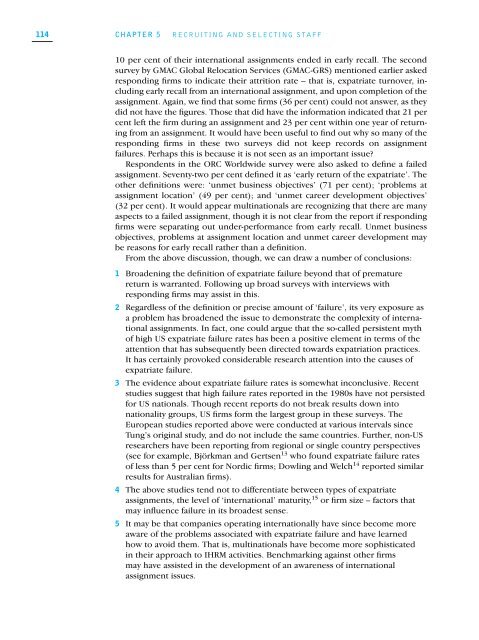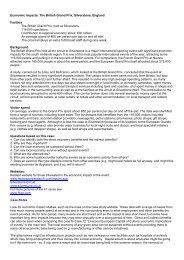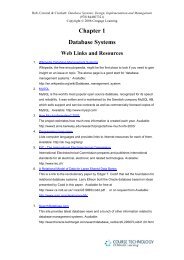CHAPTER Recruiting and selecting staff for international assignments
CHAPTER Recruiting and selecting staff for international assignments
CHAPTER Recruiting and selecting staff for international assignments
- No tags were found...
Create successful ePaper yourself
Turn your PDF publications into a flip-book with our unique Google optimized e-Paper software.
31017_05_Ch05_p109-136.qxd 9/7/07 12:15 PM Page 114114 <strong>CHAPTER</strong> 5 RECRUITING AND SELECTING STAFF10 per cent of their <strong>international</strong> <strong>assignments</strong> ended in early recall. The secondsurvey by GMAC Global Relocation Services (GMAC-GRS) mentioned earlier askedresponding firms to indicate their attrition rate – that is, expatriate turnover, includingearly recall from an <strong>international</strong> assignment, <strong>and</strong> upon completion of theassignment. Again, we find that some firms (36 per cent) could not answer, as theydid not have the figures. Those that did have the in<strong>for</strong>mation indicated that 21 percent left the firm during an assignment <strong>and</strong> 23 per cent within one year of returningfrom an assignment. It would have been useful to find out why so many of theresponding firms in these two surveys did not keep records on assignmentfailures. Perhaps this is because it is not seen as an important issue?Respondents in the ORC Worldwide survey were also asked to define a failedassignment. Seventy-two per cent defined it as ‘early return of the expatriate’. Theother definitions were: ‘unmet business objectives’ (71 per cent); ‘problems atassignment location’ (49 per cent); <strong>and</strong> ‘unmet career development objectives’(32 per cent). It would appear multinationals are recognizing that there are manyaspects to a failed assignment, though it is not clear from the report if respondingfirms were separating out under-per<strong>for</strong>mance from early recall. Unmet businessobjectives, problems at assignment location <strong>and</strong> unmet career development maybe reasons <strong>for</strong> early recall rather than a definition.From the above discussion, though, we can draw a number of conclusions:1 Broadening the definition of expatriate failure beyond that of prematurereturn is warranted. Following up broad surveys with interviews withresponding firms may assist in this.2 Regardless of the definition or precise amount of ‘failure’, its very exposure asa problem has broadened the issue to demonstrate the complexity of <strong>international</strong><strong>assignments</strong>. In fact, one could argue that the so-called persistent mythof high US expatriate failure rates has been a positive element in terms of theattention that has subsequently been directed towards expatriation practices.It has certainly provoked considerable research attention into the causes ofexpatriate failure.3 The evidence about expatriate failure rates is somewhat inconclusive. Recentstudies suggest that high failure rates reported in the 1980s have not persisted<strong>for</strong> US nationals. Though recent reports do not break results down intonationality groups, US firms <strong>for</strong>m the largest group in these surveys. TheEuropean studies reported above were conducted at various intervals sinceTung’s original study, <strong>and</strong> do not include the same countries. Further, non-USresearchers have been reporting from regional or single country perspectives(see <strong>for</strong> example, Björkman <strong>and</strong> Gertsen 13 who found expatriate failure ratesof less than 5 per cent <strong>for</strong> Nordic firms; Dowling <strong>and</strong> Welch 14 reported similarresults <strong>for</strong> Australian firms).4 The above studies tend not to differentiate between types of expatriate<strong>assignments</strong>, the level of ‘<strong>international</strong>’ maturity, 15 or firm size – factors thatmay influence failure in its broadest sense.5 It may be that companies operating <strong>international</strong>ly have since become moreaware of the problems associated with expatriate failure <strong>and</strong> have learnedhow to avoid them. That is, multinationals have become more sophisticatedin their approach to IHRM activities. Benchmarking against other firmsmay have assisted in the development of an awareness of <strong>international</strong>assignment issues.
















